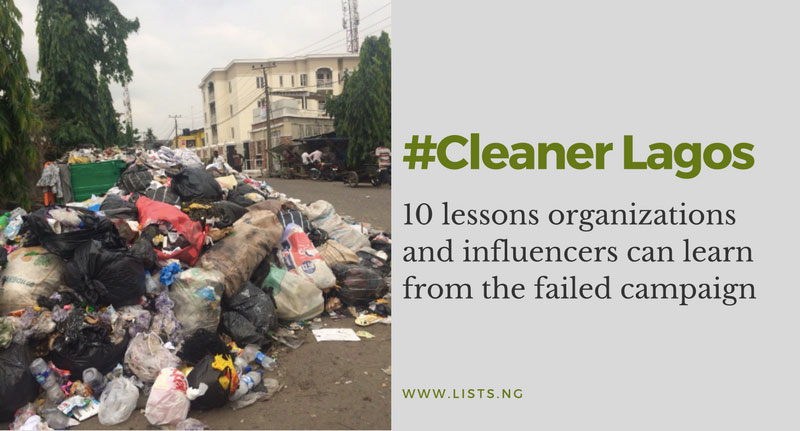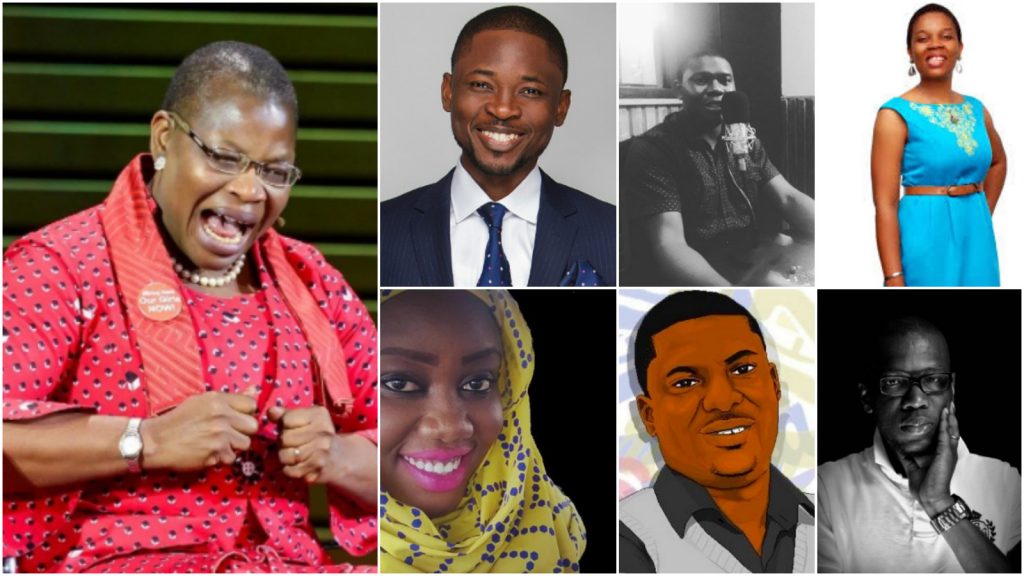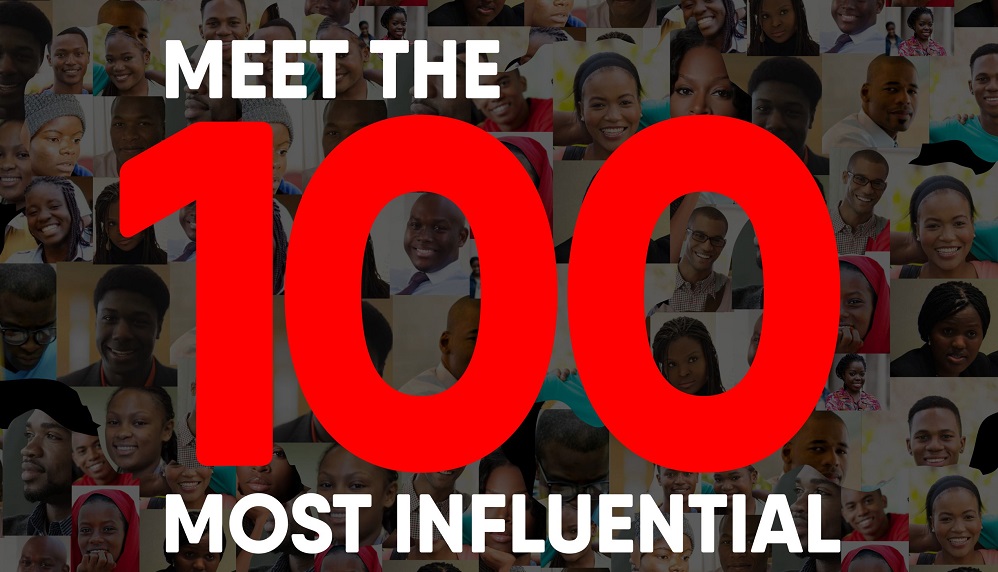Visionscape. Whoever branded this organization did a rather fantastic job. The graphics are easy on the eye, the colors are bright and cheery, and the impression you get when you see them is one of a progressive organization that means well.
LOL.
Visionscape began creeping into our consciousness sometime last year, and soon enough, we discovered they were the new ‘LAWMA’. Technically, LAWMA is still there, regulating waste management in Lagos State, but the task of actually collecting the waste and keeping Lagos clean became the responsibility of Visionscape, who had entered into a partnership with the Lagos State Government. Their beautiful trucks, bins and personnel soon became normal spectacles on our streets.
But …
As with almost all things that begin with pomp and pageantry, Visionscape soon realized that the task of cleaning Lagos was not one for the faint-hearted. Lagos became dirtier than it has ever been – maybe the abandoned PSPs were trying to sabotage Visionscape’s efforts, or PDP wanted to make APC look bad, or the people of Lagos became dirtier, but whatever it is, Visionscape were falling short, and they had to win, one way or the other.
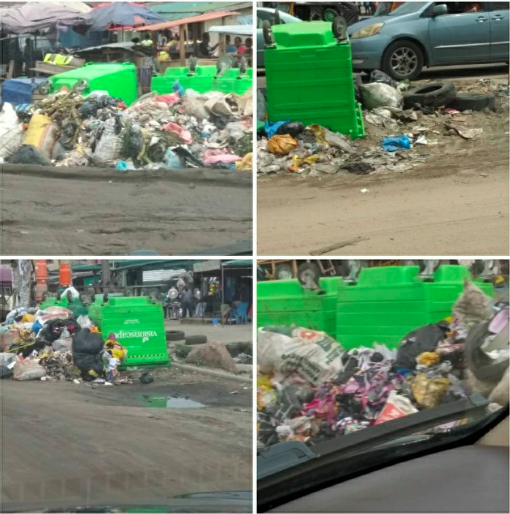
What did they do?
Start a PR campaign. In collaboration with Lagos State.
Hashtag ‘CleanerLagos’.
Basically, they took fine photos of clean streets and distributed to influencers who shared these on their Social Media pages, and tried to make it seem like Lagos was clean, when in actual sense, it was f$@king dirty.
And it backfired.
https://twitter.com/badt_BOI_/status/977919551584329729
People have been calling out Visionscape, Lagos State and the Influencers who have been peddling this falsehood, and in summary, the #CleanerLagos campaign can be said to have failed. So, what lessons can we learn from this?
-
No amount of PR can make a bad product good
No matter how much you spend trying to make a monkey beautiful, it will still be a monkey. Simple. With all due respect to monkeys, a product that is bad cannot be fixed by PR. Best it can do is get early patrons, but soon as people discover it is bad, it’s all over. Best to devote resources towards creating a good product than spending it on PR. What Visionscape/Lagos should have done was acknowledge the refuse problem, and genuinely try to solve it. Before the PR campaign. That would have saved all of us time. And embarrassment.
-
Hashtags can mar you too
Hashtags are wonderful. Since they became a thing in 2007, they have become a uniting factor, brand identification, a way to get seen/heard, etc. They are effective when rightly used. But when wrongly used, they can totally mar you. If you click #CleanerLagos, you will see more pictures of dirt, than actual clean streets. That is what happens when you try to use PR to make a bad product good, and people revolt.
-
Not all publicity is good publicity
Yes. Some people will argue that bad publicity is still okay, but ladies and gentlemen, that is not always the case. Well, unless you’re Donald Trump and you just don’t care. Image is everything, and some organizations cannot afford to constantly be perceived negatively. The establishment of Visionscape was marred by controversy (story for another day), and this failed #CleanerLagos campaign has added to the bad image the company has. Too bad.
-
We are not dumb
Contrary to popular belief, we’re not all dumb in this country. I mean there is a strong case for all of us being mad – what with the kind of people we elect, etc., but many of us are actually not dumb. We can see through PR stunts, and no matter how you try to sugarcoat sh!t, we can smell it from a mile away. Lagos is dirty, and PR won’t clean it up. A better strategy will involve honesty – “Lagos is not as clean as we want it to be, but we are working towards it. You can help us by not littering bla bla …” See? Now we feel a bit respected.
-
Optimize for credibility over visibility
When seeking influencers, optimize for credibility, over visibility. As with previous points, not all visibility is good, and using every Tom, Chidinma or Sammy with thousands of followers may translate to visibility, but not credibility. Let your torch be carried by credible people, with real positive influence
-
Take care of you
Brands, look for, and hire an agency that is more interested in making you look good than making people see you. More importantly, hire people – agencies, influencers, consultants, etc., – who care about you more than they care about money. Yes, they exist. These are the kind of people who will tell you why your plan – that will put money in their pockets – may not be as good as you think. These are the people who propose better ways to do things, even at the risk of losing money. These are the people you should work with. If the growth/positive perception of your business is not as important to someone as it is to you, don’t work with them.
For influencers
-
Integrity is everything
This cannot be overemphasized. If that brief pricks your conscience, you may want to rethink taking the job. No amount of money is worth the respect your followers have for you. If you deceive them today, how will they believe you tomorrow? If they do not believe you tomorrow, how will brands use you to sell to them? You see? You have succeeded in not seeing the big picture, and losing out on future opportunities. Your credibility should come before credit alert. So – with all due respect to everyone and everything they’re dealing with financially, say no to certain jobs. Another will come. Money is mostly only good when you don’t regret it later.
-
Immerse yourself in the project
Some call it experiential campaigns, and I’m here to tell you it’s the best way to influence people. It’s as simple as this; if you are promoting a product/service, use it – unless you absolutely cannot, or using it does not apply. If – for example – Nokia wants you to promote their new device, use it first, and take your followers through the journey of unboxing, discovering and experiencing the new phone. Tell a digital story, and you’ll likely get more hits than just telling people the new Nokia is loaded, hashtag #LoadedNokia.
Back to #CleanerLagos; if the influencers used were based in Lagos, and actually took their own photos, they would have known that they were promoting a ‘bad’ product.
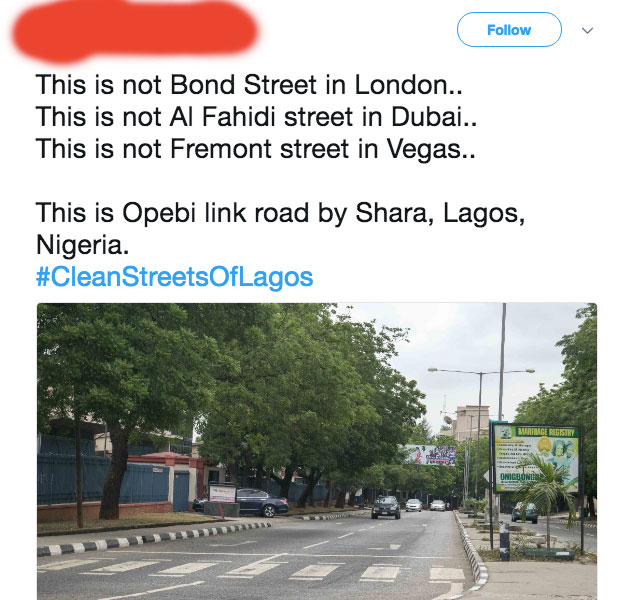
If they had immersed themselves in the project, rather than copy and paste content, they would have done what any credible influencer would do; and that is:
-
Terminate that contract
A lot of influencer jobs come with contracts. Read them. Very well. And ensure your interests are protected before signing. I have had back-and-forths with clients many times because certain things I saw in the contract did not sit well with me. I have edited contracts with my own terms; sometimes the client budges, other times we agree we can’t work together and we part ways amicably. Everybody’s happy.
Point is – especially for campaigns that could be controversial – always ensure there is a clause that says you can terminate that contract anytime, if your reputation is on the line. What happens after the termination is left to you to decide – full refund, refund for period left, no refund, etc. But be able to walk away from a bad job. Protect yourselves, kings and queens.
-
Apologize
If you find yourself in the unfortunate situation where you have stained your white with a bad product/service/campaign, do not be ashamed to admit you have made a mistake. Apologize to your followers and try to set the records straight. We’ve all made mistakes, and it’s a part of life we cannot do away with.
Of course, sometimes, the NDAs you sign won’t let you do this, but when you can, treat your followers with respect, and apologize for misleading them. For many reasons, Nigerians are generally very forgiving people, so when you do this, the number of people bad-mouthing you will be way less than those standing beside you. You’re welcome.
***
This listicle was written without malice. If you’re on the table that is being shaken, no vex. Let’s all learn, grow and flourish together. Regards, Chidi.

